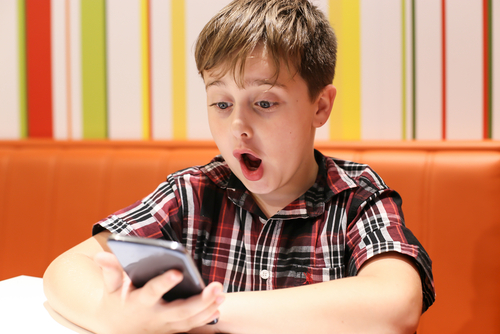Household Bills
Kids go back to school with gadgets worth £3.2bn

When under-16s return to school in September, their satchels will contain £3.2bn worth of gadgets – an average of £270 per school bag – an increase of 108 per cent on the previous school year, according to uSwitch.com research.
The findings suggest half of all parents will buy their children new tech ahead of the autumn term, spending an average of £134 per household, meaning 22 per cent of children will go back to school with technology worth over £400.
uSwitch suggests the increased spend could be attributable to a rising reliance on gadgets for homework assignments; 33 per cent of children rely on tablets to get their homework done (up from 24 per cent last year), while 14 per cent use their smartphones (up from 11 per cent).
Despite increased tech spending, parents are evenly split on the issue of whether tech is helping or hindering children, with 50 per cent believing gadgets give children an educational advantage, 49 per cent fearing technology can have a damaging impact on a child’s social skills.
Similarly, 48 per cent worry a reliance on gadgets will make a child’s handwriting worse, 57 per cent that children will become too reliant on spellcheck, 46 per cent that mental maths skills will be adversely impacted, 42 per cent verbal communication skills. Half worry that technology damages children’s attention spans. Schools appear sceptical of the value of technology, with 24 per cent banning them from lessons, and 27 per cent having a total ban on gadgets on school premises.
Widespread concerns about technology haven’t stopped parents from buying tablets and smartphones, even for toddlers; 20 per cent of parents bought their child’s first gadget when they were under the age of four, and 36 per cent don’t place any restrictions on the time their children can spend using gadgets. The average UK child now spends more than three hours a day using gadgets, excluding time spent watching television.
The findings also highlight the social pressures associated with technology, with 9 per cent of parents saying their children have been bullied over technology, as a result of the brand they use, or not having the latest technology.
“As gadgets become more integral to our daily lives, it’s not surprising parents want their children to have the latest technology, especially if it offers their child an educational advantage,” said Ernest Doku, technology expert at uSwitch.com.
“Embracing tablets and laptops in both the classroom and with homework can speed up research, as well as lighten the load with children carting around fewer books. But many parents are still concerned about how much kids are using gadgets, and whether it will impact their social skills in the long term.
“Parents could alleviate some fears about how their child is using gadgets by setting clear boundaries for how and when they use them. By engaging with their child and making the time to use gadgets together, parents can nurture their development and help their child learn to use technology more responsibly.”
[article_related_posts]